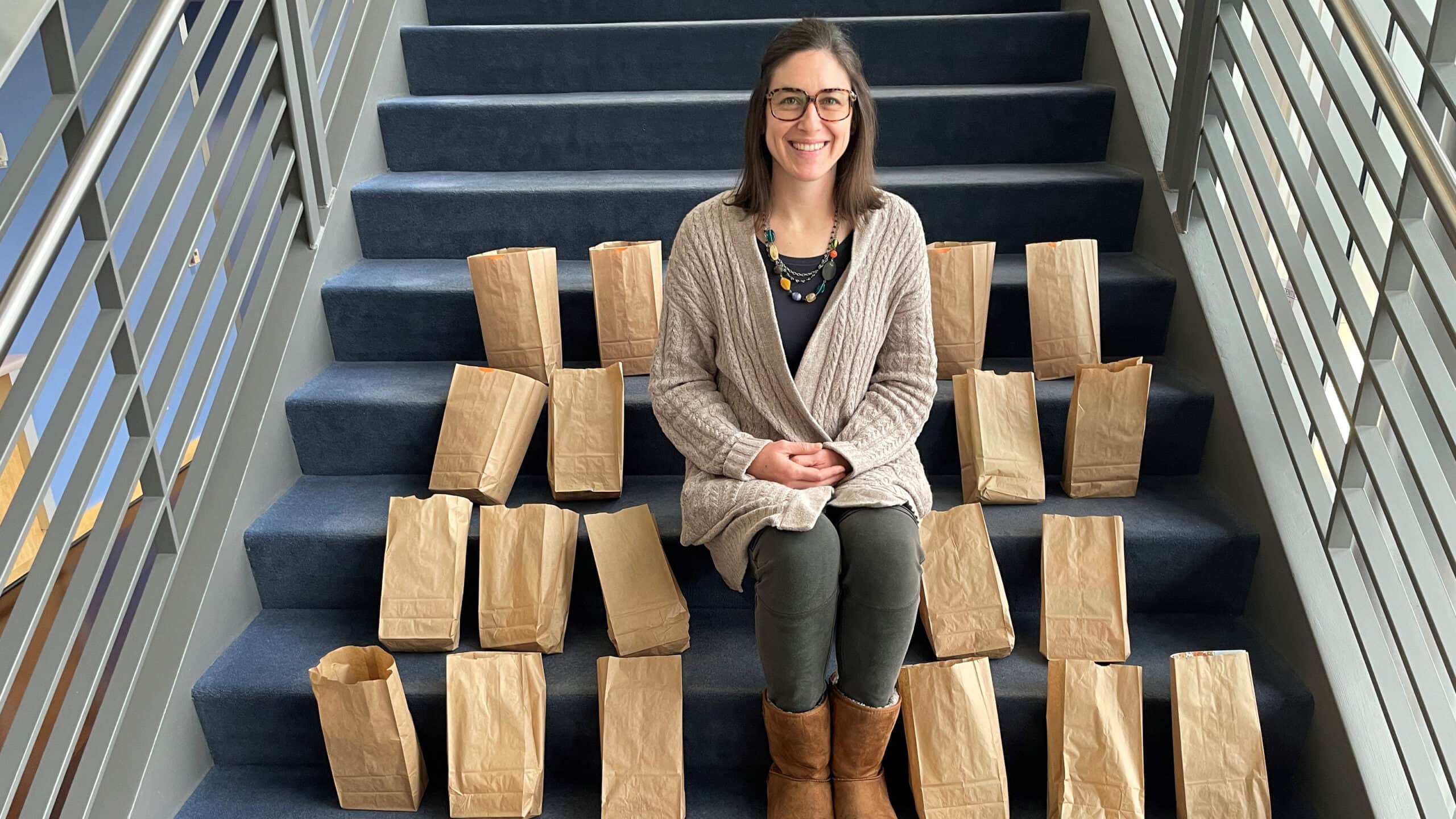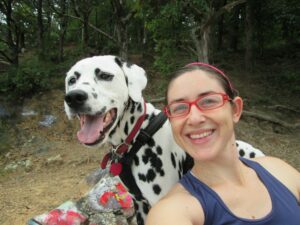Gift Bags Offer Encouragement and a Chance to Give Back
| With her ever-present smile and energetic personality, one might not comprehend the struggles that Anna Ruth Merritt has dealt with since she was a young girl.
“My symptoms started as a kid. I knew that I was different, but I never really had a feeling for why I was different,” said Merritt, 37, a native Arkansan who has lived in Conway for the past seven years. A former residential treatment counselor in South Dakota, Merritt found that working with children who had behavioral issues helped her recognize potential problems of her own.
“I really connected with the kids who had outbursts of anger,” she said. “That’s how I felt inside — I felt a lot of that anger internally.”
A former English teacher in west Africa’s Burkina Faso, Merritt was diagnosed with post-traumatic stress disorder after witnessing the ethnic violence that occurred during a political uprising in Kenya in 2007-2008 and claimed the lives of hundreds, many of them women and children. She eventually returned to the United States, where she found herself dealing with thoughts of ending her life.
“I always thought that I had some pride, that I could keep my feelings under control,” said Merritt, who moved to Conway to live with her parents in an effort to get help for her suicidal thoughts and the anxiety that accompanied them. A series of jobs that included working in a local thrift store and opening a plastic-recycling business only increased her anxiety and depression levels.
When she was admitted to the Women’s Inpatient Unit at the University of Arkansas for Medical Sciences’ (UAMS) Psychiatric Research Institute in June 2021 so she could give her “brain a break from trying to cope,” she was introduced to Jessica Coker, M.D., the unit’s medical director.
Using a combination of medications and psychotherapy, Coker spent the next two weeks helping Merritt restructure how she viewed herself and the world.
“Anna Ruth is very conscientious, she’s very engaged,” said Coker. “She had severe anxiety and had a lot of problems with how she approached stressful situations. I challenged her to rethink her beliefs, which could be overwhelming for her at times.”
Two subsequent stays on the Women’s Unit allowed Coker to continue her work with Merritt.
“Dr. Coker really cares for her patients,” said Merritt, who learned how to address some of her more troublesome issues from Coker. “I benefitted a lot from her insight.”
Taking part in a weekly support group in Psychiatric Research Institute’s Walker Family Clinic that focuses on dialectical behavior therapy, which is designed to help people change harmful ways of thinking and behaving, also has proved beneficial for Merritt.
“Group therapy gives members a sense of community and lessens their feelings of isolation. When members hear other people’s stories, they not only feel less alone in their struggles, but also benefit from seeing others benefit from therapy,” said Heather Allen, LCSW, who leads the therapy group along with Emily Trower, LCSW. “Anna Ruth is always sharing her experiences with skills and problem-solving struggles with the group leaders and other members. She works really hard to not only understand the concepts and skills but also apply them to her own life. She is actively building and living a life of meaning, which has been such a pleasure to see.”
“I’ve learned how to say that I’m okay just as I am, to pick one thing and work on it,” said Merritt. “It’s much more manageable to try to troubleshoot one thing than try to optimize everything.”
Some of the things that Merritt is focusing on these days include her recycling business, which will eventually turn discarded plastic into useful items like jewelry and wall pegs – “I’m in the product development phase,” she said with a hopeful grin – and her recently adopted rescue dog, Giff.
She’s also taking time to help others dealing with some of the same issues she was facing last year. A member of the Mosaic church in Conway, Merritt and the church’s staff were discussing outreach opportunities in the community when she suggested putting together gift bags for patients on the women’s unit at the Psychiatric Research Institute.
“Having been there, I think it’s really easy to feel a sense of loss and separation,” she said. “You feel separated and not loved by the world at large.”
With direction from Coker, Merritt, a few friends and her church members assembled bags containing items intended to entertain and encourage the patients on the unit. The bags included markers, activity books, stress balls and blank stationery “in case they want to write a note to anyone,” Merritt said.
“We want the patients to feel more connected and less alone,” she added. “We want to let them know that someone cares for them, someone outside of the hospital.”
Merritt has made advances in her life over the last year but says that it is “still an ongoing discovery process.”
“I think I’m over the hump, but I know that there are still going to be difficult times. I know that there’s going to be pain and I have to accept it and tolerate it. I’m grateful for the care that I have received at PRI, they’re there for the ride. They are persistent and interested in seeing me happy and healthy and that means a lot to me.”

